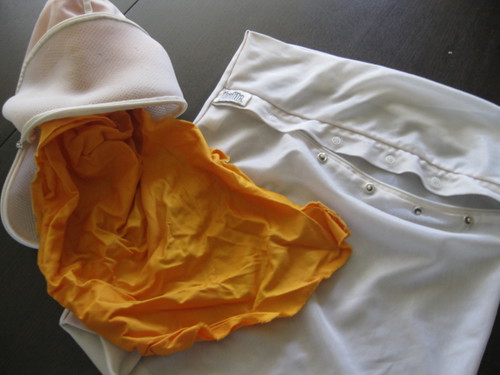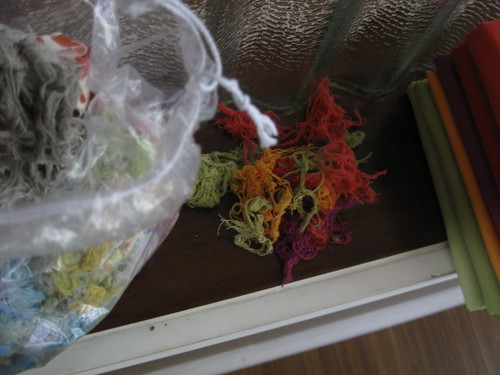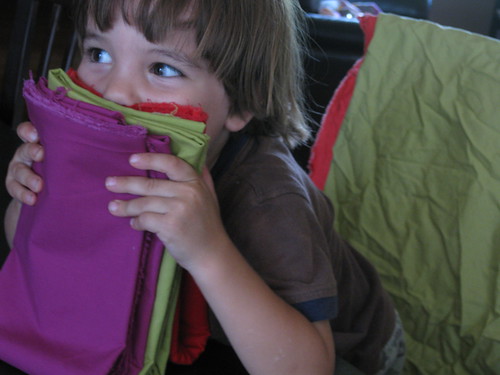Stitch Your Life: How to Care for your Fabric
One happy day... your new fabric arrives! Love, love, love!!! You admire it in stacks, unfolded, then folded again. Oh, are you putting it away now? Already? WAIT!
Prewash First.
If you don't prewash now, how will you ever remember which fabrics in your fabric stash are washed, and which aren't?
I used to prewash before each project. Oh, how annoying! I'd be all jived about starting something new, only to find myself in prewash slow-motion. And then there were those times I forgot to prewash. Problems! I also used to rationalize that some projects don't require prewashing, which is true. If you'll only handwash your project, a machine wash and dry is not necessary. But, then the scraps from that project won't be prewashed. If you use them along with other scraps, project #2 is going to shrink very oddly. So, save yourself the brain power and prewash before ever putting your new fabric away!
(P.S. prewashing removes yucky chemicals from the manufacturing process, so it's always doing some good, regardless).
How I Prewash
First I prep my fabrics by unfolding them and placing them in separate delicate bags. The bags prevent the fabrics from tangling with each other when the edges start to unravel in the wash. If you just throw 5 cuts of fabric in the machine together with no prep, you'll spend quite a while cutting all the threads and then longer mourning the loss of so much fabric edge. Sometimes I have to double up, placing 2 cuts in 1 delicate bag. Doubling up is OK, but anymore than that causes madness.
By the way, I tried preventing the unraveling edge tangle by clipping the corners of each fabric cut. That didn't do squat for me. I've also heard of cutting each edge with pinking shears. I think this would work very well, but it'd be time-consuming for sure. I don't even have a nice pair of pinking shears...
Next, I wash my fabrics on "light" with a little detergent. The detergent will help lift the manufacturing chemicals. I wash on cold, because I'm determined to never wash something I've made on hot. If you know you'll be washing projects on hot, you need to prewash in hot water. Hot water is more likely to cause color bleeding, so use a color catcher to protect your fabric purchase.
Then, machine dry until almost dry. Nope, you can't hang dry because it's the machine drying that will cause shrinkage. You want to make the fabric shrink now, not later. I like to remove my fabrics from the delicate bag and put them back in the drier for 15 more minutes. This releases creases that are otherwise quite hard to iron out. Iron your fabric asap and while it's still just slightly damp so that those creases don't get heat set in the dryer!
Confession - I save my unravelled threads. They're so soft and spongy and pretty! My daughter occasionally wants stuffing for her sewing projects. This'll be perfect. Besides, I feel better not throwing it away.
Fold & Store
Folding - so obvious. But, what I want to suggest here is that you choose a particular folding style and stick to it. Every fabric store seems to fold and ship fabric differently. If you want your fabric to store nicely in the cabinet (which you so totally do, right?) you need to be consistent. Some people use a quilting ruler to fold with, as a template. I simply eyeball it, knowing the shape I aim to achieve.
Store your fabric somewhere out of the light and protected from dust. A cabinet or drawer is ideal. Make sure you peak in at it often to check that it's happy ;0). Arrange and rearrange to achieve optimal viewing pleasure.


